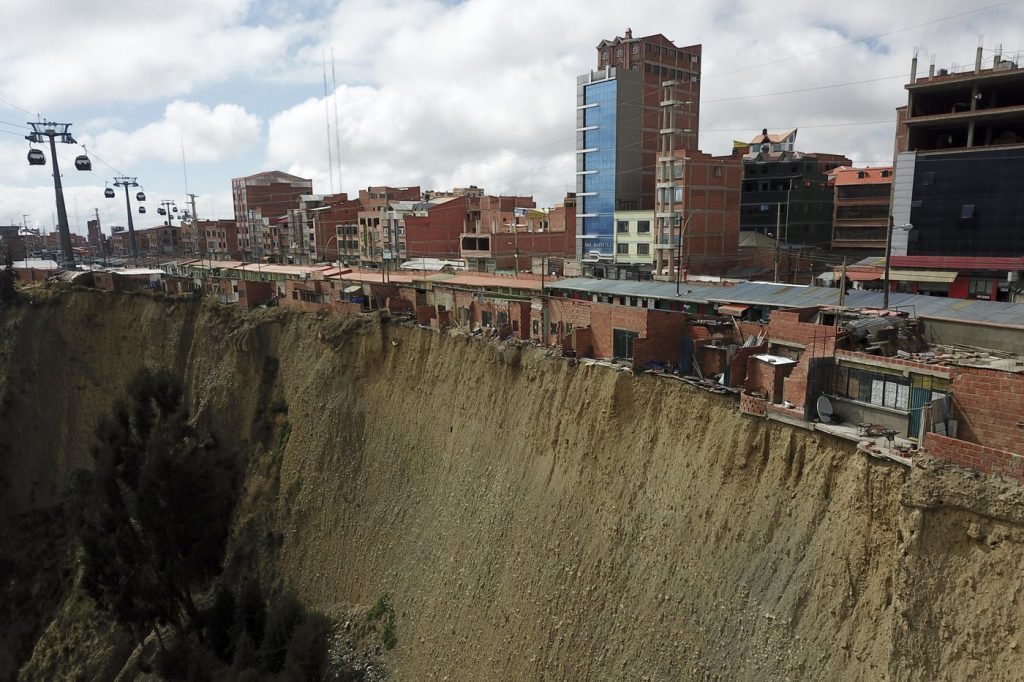Shamans refuse to evacuate precarious cliff-top shacks in Bolivia despite government order

EL ALTO, Bolivia (AP) — The view is dizzying from the row of small huts that dot one of the mountainsides surrounding Bolivia’s capital. Inside the precarious structures, Aymara shamans pray to the Andean gods to protect them from the threat of collapse.
In recent years, the erosion of the mountain range around La Paz has accelerated due to the effects of climate change. A month ago, a mudslide buried an entire neighborhood and killed a girl. This has created a conflict between the shamans and Bolivia’s government, which has ordered the area evacuated.
“The slope is wearing away,” said Gabriel Pari, secretary of water and sanitation for the El Alto municipality, where the huts are located. But, he added, the shamans insist “they perform rituals to prevent this from happening and refuse to leave. The area is highly risky. They say they have been here for more than 60 years, and nothing has happened.”
Advertisement
The site is not a rock formation but a sandy and clay-like soil, according to geological studies.
The area has been sacred to the Aymara Indigenous people since pre-Hispanic times. During colonial times, the shamans performed rituals on this summit before entering the city with their llama caravan carrying agricultural products.
Pari said the huts function as a workplace for the shamans, who do not live there but often spend the night in the small structures.
A sign on the door of Tiburcio Condori’s hut details the services he offers: He sees the future in coca leaves and playing cards. He also cures illnesses and heartaches, makes offerings for success in business and health, and cleanses energy to heal the body and spirit. A bonfire burns outside. The air smells of incense.
“This is solid ground; it will not fall. That is what the coca leaf and Pachamama tell us,” Condori, who has worked as a shaman and spiritual guide for more than 20 years, said using the Indigenous community’s word for Mother Earth.
Advertisement
Condori has no plans to evacuate the area, and neither does Ana Chinahuanca. She is among the 100 shamans who work on the cliff, charging around $2 for reading fortunes in coca leaves and up to 15 for energy cleansings.
“They are giving bad information,” Chinahuanca said of the danger warnings. “This place is safe.”
Carlos Valdez, The Associated Press